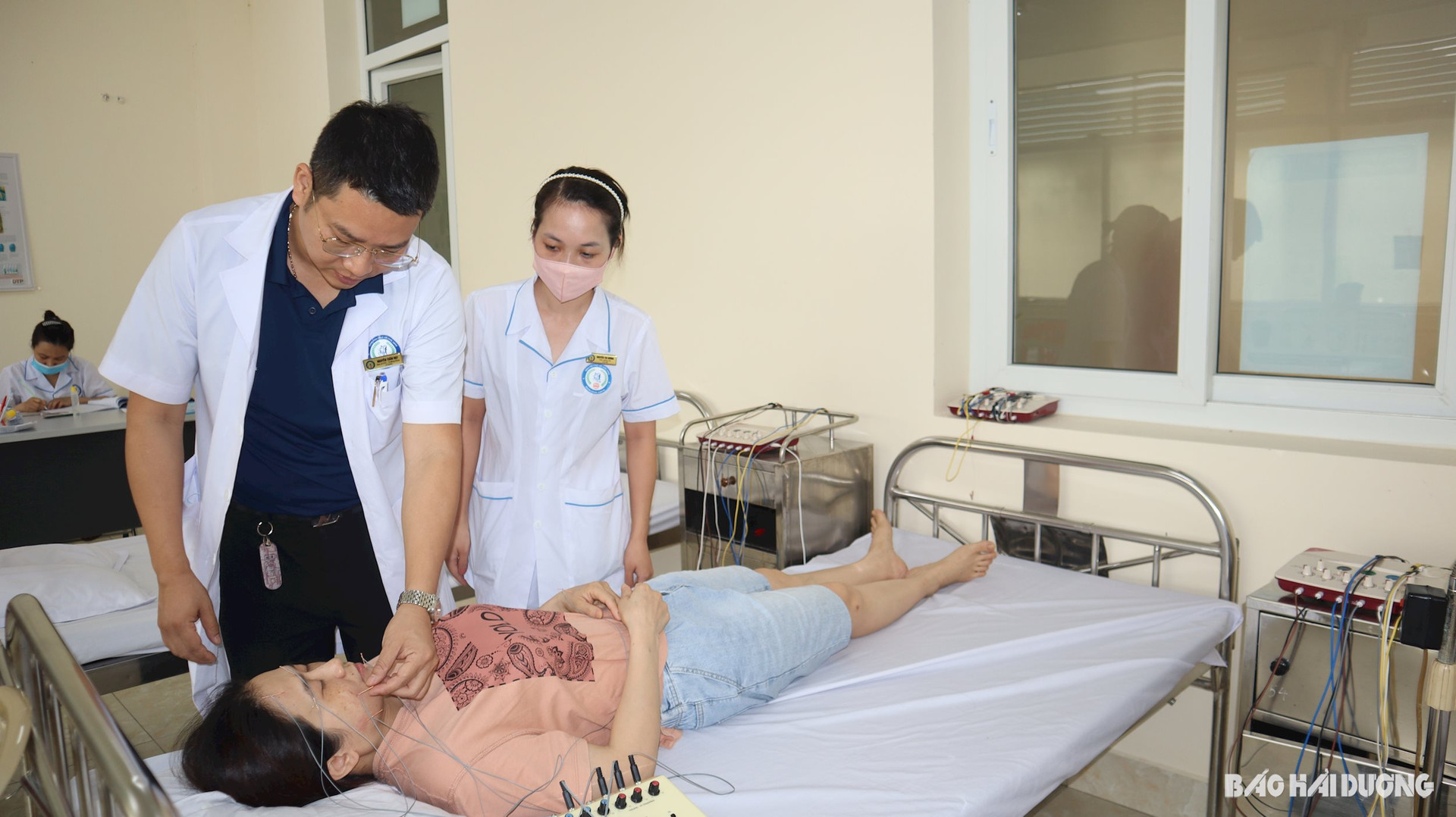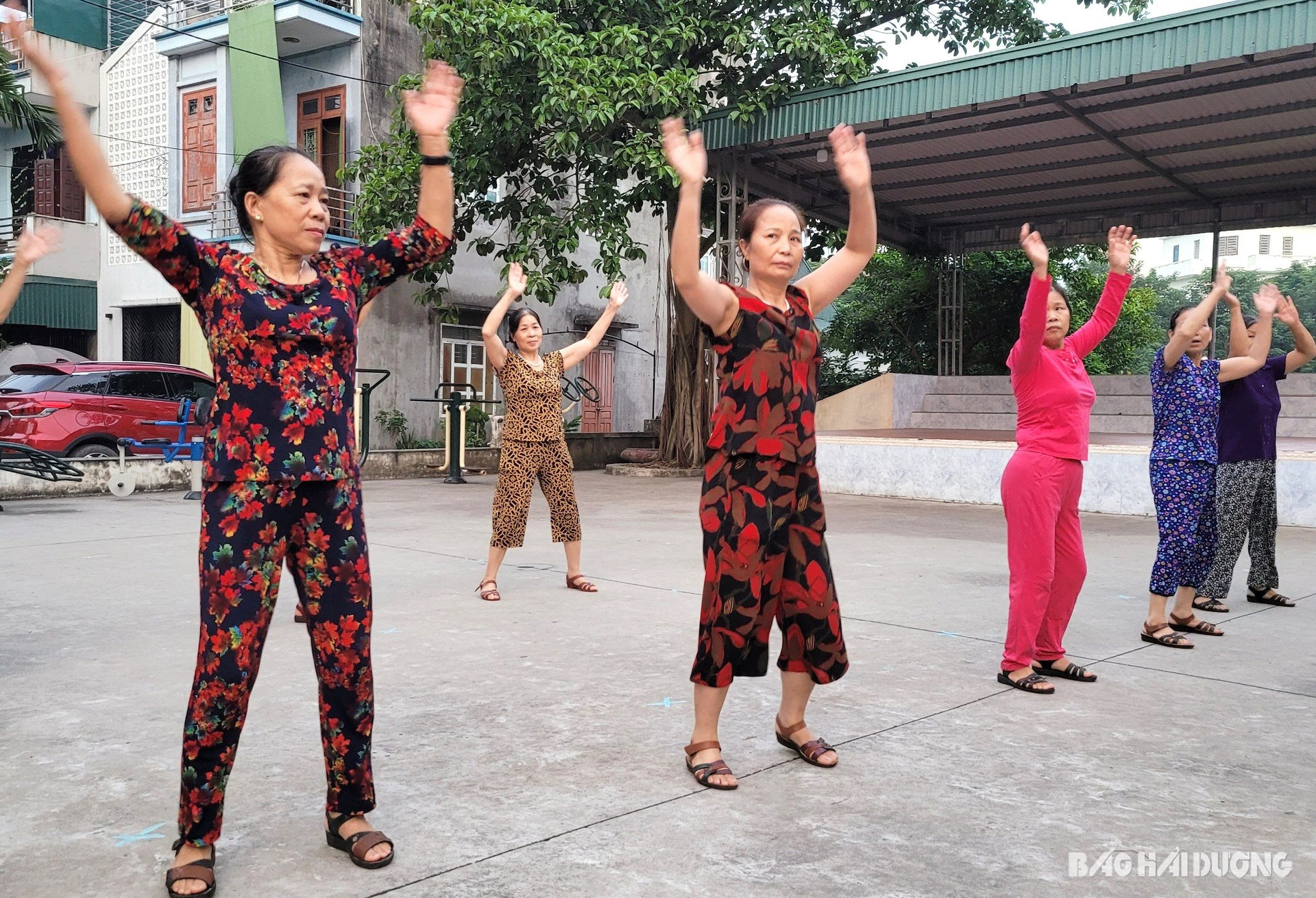During the change of seasons, especially when the weather turns cold, the number of people with peripheral facial nerve palsy increases. If patients do not receive timely treatment, their quality of life will be significantly affected.

Common during changing seasons
In recent days, Hai Duong Traditional Medicine Hospital has received many patients with facial nerve palsy, including both adults and children. From June to September, the hospital received nearly 20 patients with this disease. The Pediatrics Department alone received 5 patients aged 5-13. According to doctors at Hai Duong Traditional Medicine Hospital, peripheral facial nerve palsy is a condition of damage to the facial nerve, causing the patient to partially or completely lose movement of the facial muscles.
PTN from Lien Hong commune (Hai Duong city) was admitted to Hai Duong Traditional Medicine Hospital with a distorted face, unable to close his eyes, unable to close his mouth... N.'s family said that he had the above symptoms after being caught in the rain and catching a cold. At first, the family subjectively thought he had just had a mild stroke, so they used massage oil and tried folk remedies but it did not help, so they had to take him to the hospital. After 8 days of receiving acupuncture, hydro-acupuncture, phototherapy combined with massage, acupressure, muscle training... by doctors from the Traditional Medicine Hospital, N. has gradually recovered.
During the change of seasons, many families often do not pay attention to the temperature difference between the room and the outside, so when waking up, they often open the window to welcome the fresh morning air. This makes it easy to get a sudden cold, leading to peripheral facial nerve paralysis.
Treated at the Department of Traditional Medicine (Provincial Rehabilitation Hospital), Mr. D.VL in Ngoc Chau Ward (Hai Duong City) said that when he woke up, he felt the room was a bit hot so he opened the balcony door for ventilation. When brushing his teeth, he could no longer close his mouth. Looking in the mirror, he saw that his mouth was crooked, especially when he blinked or closed his eyes, the two eyelids of his left eye could not close. Thinking he had a stroke, Mr. L. immediately called his family to take him to the doctor and was diagnosed with peripheral facial nerve 7 palsy.
Doctor Hoang Quy Quan, Department of Pediatrics, Provincial Traditional Medicine Hospital, said that 80% of cases of peripheral facial nerve palsy are due to cold or sudden changes in weather from hot to cold. The peripheral facial nerve is close to the skin, so it is very sensitive to temperature. If it suddenly gets cold, the blood vessels that nourish this nerve will constrict, causing damage. Therefore, it only takes a few seconds of exposure to a cold source to get sick. Therefore, in recent days, when the seasons change, people have difficulty determining the temperature between outside and inside the house, so when going out in the environment, they are susceptible to catching a cold and getting sick.
Don't be subjective.
According to doctors, there are two types of facial nerve palsy: central facial nerve palsy (caused by stroke) and peripheral facial nerve palsy (caused by cold, otitis media, shingles). Many people do not understand the distinct symptoms of damage to these two types of nerves, so it is easy to confuse them and lead to late treatment.

“When I felt numbness in my left arm and crooked mouth, I thought I had a stroke, so I went home to get some massage oil, but it didn’t help. Immediately after that, I felt the numbness spreading to my right arm and leg, so I called someone to take me to the hospital. Luckily, I was still in the golden stage of stroke treatment. If I had stayed at home, I don’t know what would have happened,” said Mr. Nguyen Van Vu in Pham Kha commune (Thanh Mien) when he mistook stroke (peripheral facial nerve palsy) for central nervous system palsy.
Doctor Nguyen Tuan Dat, Head of Traditional Medicine Department (Hai Duong Rehabilitation Hospital) said that the first month after peripheral facial nerve palsy is the best time to treat this disease, so treatment should be sought as soon as possible. The longer it is left, especially after 3 months, the slower the progression, leaving sequelae, making it difficult for the patient to fully recover, and the face and mouth may be permanently crooked. In particular, when there are symptoms of crooked mouth, spilled food, and eyes that cannot be closed, it is necessary to go to the hospital for immediate examination and treatment. Patients should not be subjective in treating it with folk remedies such as scraping, applying eel blood, etc.
Peripheral facial nerve palsy does not depend on gender or age. The disease can also recur. According to doctors, to prevent the disease, the most important thing is to keep the head, face, and neck warm, avoid cold wind or sudden changes in body temperature. In the morning, when waking up, you should stay in a warm room for 2-5 minutes to get used to the weather before going out. When children play outside in the cold, parents need to pay attention to dress them warmly, wrap them in scarves, and wear hats. Avoid letting children sit in drafty places, do not bathe too late, when traveling long distances, wear glasses, cover your face, cover your jaw, wear a mask, and do not let children sit in the front of the car. After drinking alcohol or beer, do not go outside in the cold or take cold baths, exercise regularly, and eat scientifically to improve the body's resistance.
When there are suspected symptoms of the disease, you need to go to a medical facility immediately for timely diagnosis and treatment to limit complications.
BAO ANH